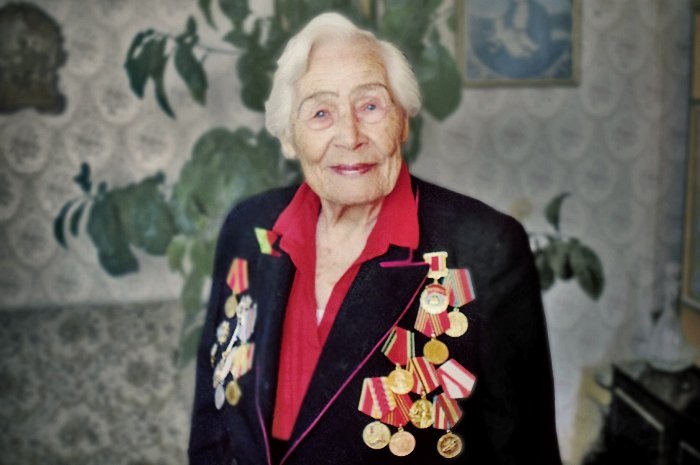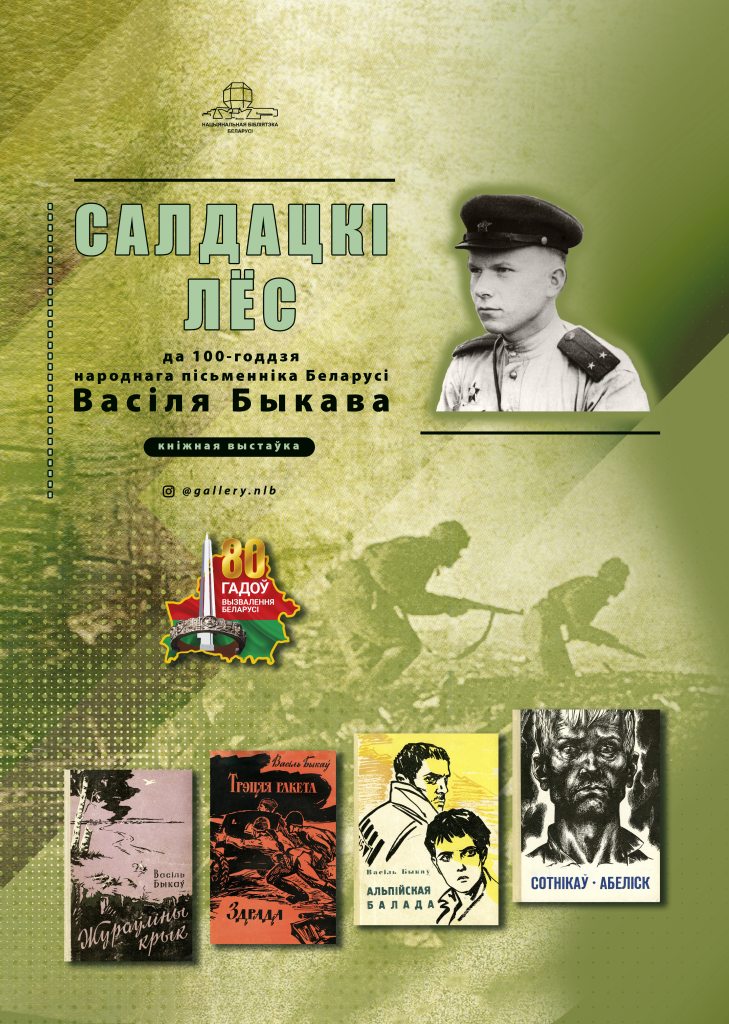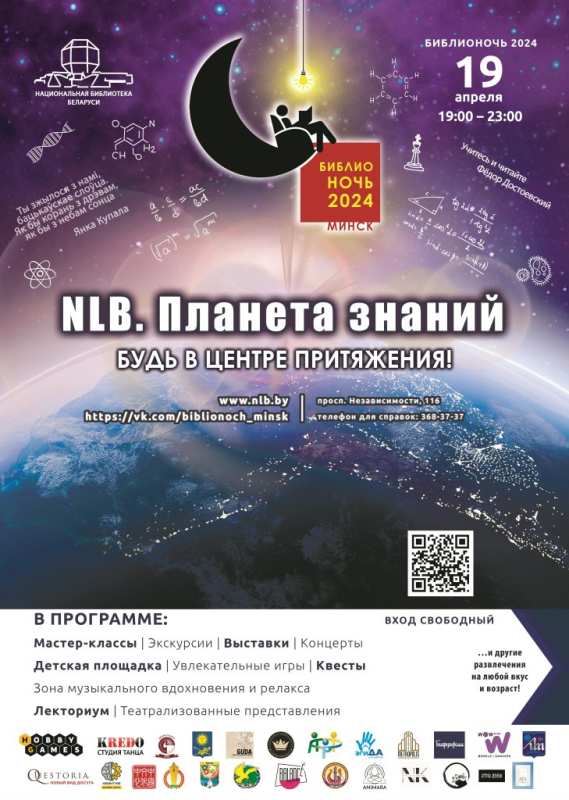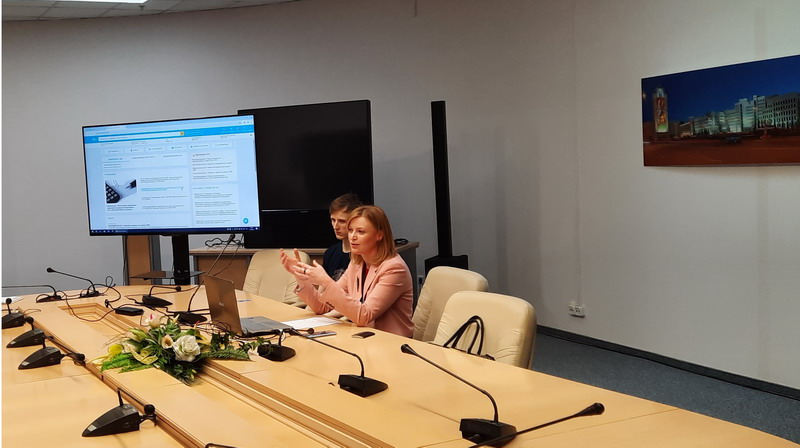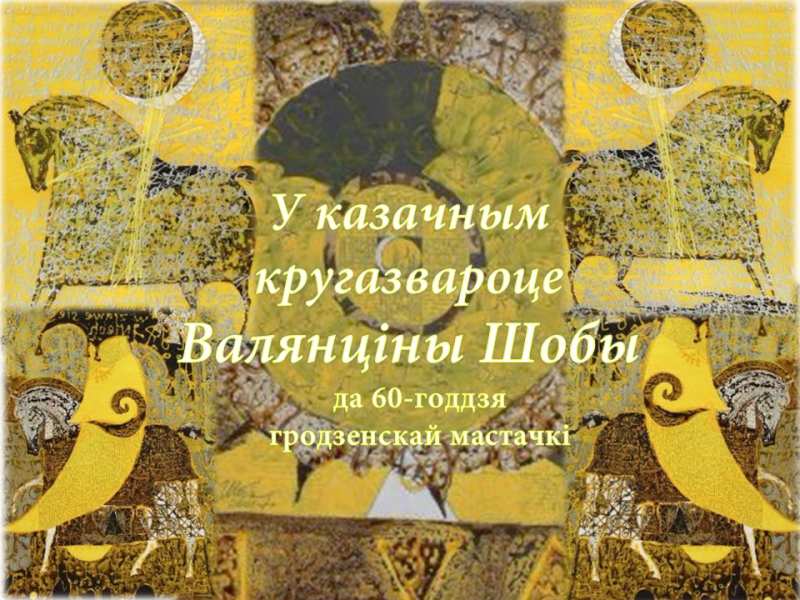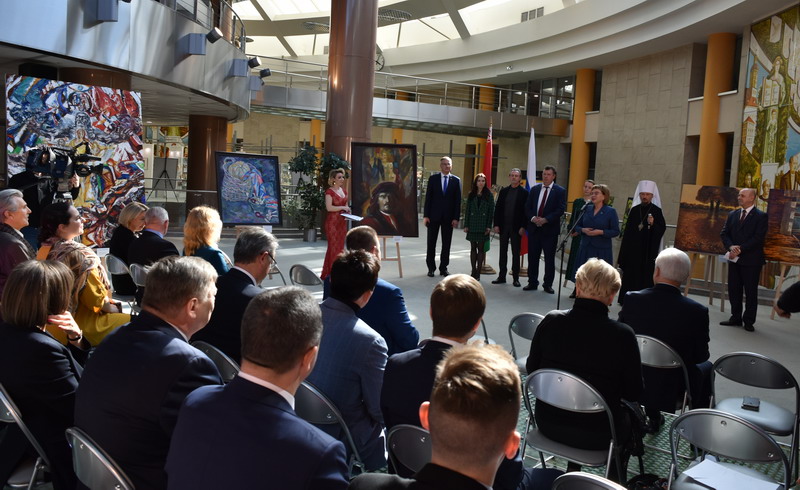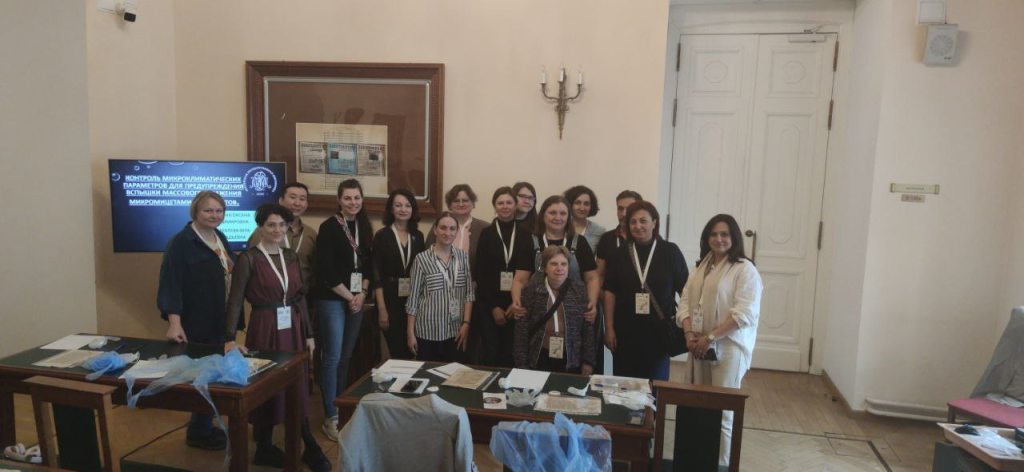Raisa Petrovna Simakova is a person with an amazing love of life. Having survived the Siege of Leningrad and suffered many losses, she still inspires with her optimism. This is a person who keeps in mind a plenitude of dates, events, facts and names; a person whose experience is priceless...
Raisa Petrovna starts the conversation by telling about her sporting achievements. In fact, it’s hard to believe that this peppy woman with clear, cheerful eyes and a subtle sense of humor will be 99 years old on September 18 this year...
“At 89, I was still skating! I’ve been skiing all my life and was the first everywhere! I have a badge of the BSSR Swimmer of the USSR Merited Tourist! Just imagine, it’s 28 degrees below zero, my mother is sitting in felt boots on the stands, and I’m swimming in the outdoor pool,” Raisa Petrovna begins the story. At this moment, you understand that not only the strength of mind of the young girl who had survived the Siege, but also a healthy and active lifestyle allowed her to remain such a cheerful and optimistic person.
Raisa Petrovna stops talking... Her memories return to those years that left an indelible mark on her mind and life. The tumultuous years took the lives of her loved ones, but could not take the stamina, endurance and courage of this strong and fragile woman.
“On my nineteenth birthday, on December 19, 1941, in Leningrad, on Nevskaya Dubravka, which was then called the “Death Valley,” my brother Nikolai died...” recalls Raisa Petrovna. After taking a pause, she continues: The Germans came very close... On this terrible day, I worked in the hospital’s emergency room, taking care of the wounded, applying dressings... Relatives came to sick and wounded patients, it was a reception day, Sunday... "
Raisa Petrovna remembers this day in minute detail, despite the many decades that separate her from the blockade hell...
“And suddenly the sky turned black, a terrible rumble and crash began... We saw a myriad of enemy German aircrafts. They shot and bombed everyone and everything. It was very scary... People rode a tram to visit relatives, and the Germans shot them at the entrance to the hospital. We were desperate because the next tram was coming and we couldn’t warn them not to go here...” Raisa Petrovna says bitterly.
 Raisa Petrovna’s colleagues in the garrison evacuation hospital No. 1171 called her the “Peg-Nurse.” Here she worked from the very beginning of the Great Patriotic War until the Great Victory. Her life force helped her to survive, despite terminal dystrophy and frequent hungry fainting. Of all her family, only her mother, Anna Simakova, remained alive. They worked together at the hospital until the end of the war. Mother and daughter met the Great Victory in Riga, Latvia, where the hospital had been relocated to treat the wounded who were delivered from the Berlin direction. There they remained until September 1945.
Raisa Petrovna’s colleagues in the garrison evacuation hospital No. 1171 called her the “Peg-Nurse.” Here she worked from the very beginning of the Great Patriotic War until the Great Victory. Her life force helped her to survive, despite terminal dystrophy and frequent hungry fainting. Of all her family, only her mother, Anna Simakova, remained alive. They worked together at the hospital until the end of the war. Mother and daughter met the Great Victory in Riga, Latvia, where the hospital had been relocated to treat the wounded who were delivered from the Berlin direction. There they remained until September 1945.
The Great Patriotic War has left its mark not only in the soul and heart of Raisa Petrovna, but also on her military tunic. She is awarded the Order of the Patriotic War II degree, medals "For the Victory over Germany in the Great Patriotic War 1941–1945," "For the Defense of Leningrad" and more than 20 anniversary medals for the victory over Nazi Germany, the sign "Veteran of the War 1941–1945” in honor of the 55th anniversary of the Victory in the Great Patriotic War 1941–1945 from the President of the Republic of Belarus A.G. Lukashenko, a memorial sign of St. Petersburg "In Honor of the 70th Anniversary of the Complete Liberation of Leningrad from the Siege," a sign "25 Years of Victory in the Great Patriotic War."
We move from the bitter memories to a talk about the family and life of Raisa Petrovna before and after the war.
“In 1917, a terrible famine began in St. Petersburg, and my parents decided to move home to their father in Bezhetsk, Kalinin Region (not far from St. Petersburg),” Raisa Petrovna says. It was a very rich city – even richer than Tashkent, the “City of Bread”. There were the estates of the mother of writer N. Gumilyov, Russian and Soviet writer and engineer V. Shishkov, and there my father's father lived. Here, in this city, I was born on September 18, 1920, and my brother Nikolai in 1922. In 1923, my father Pyotr Semyonovich died from the pneumonia during the construction of our house. He was only 29 years old..."
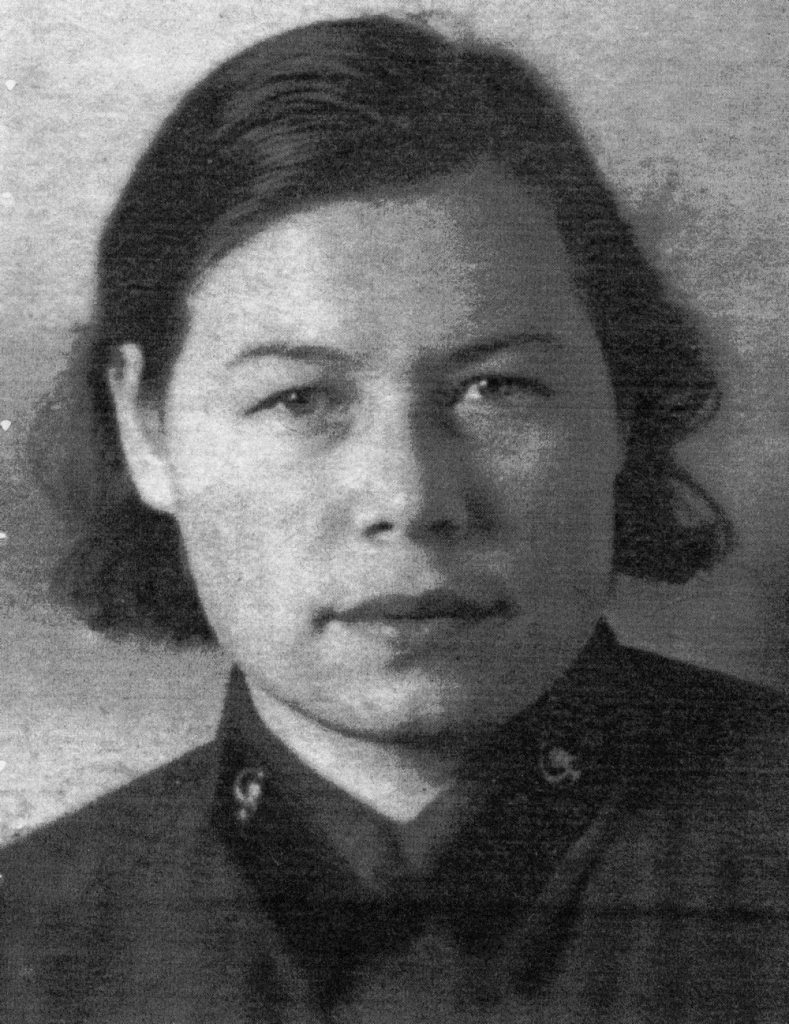 A few years later, her mother decided to return to her native Petersburg with her children. In 1939, young Raisa, after leaving school, entered the literary department of the Pokrovsky Leningrad Pedagogical Institute, where she studied until 1941. While attending the institute Raisa Petrovna completed two-year courses for nurses in the reserve (June 18, 1941). But, unfortunately, she did not manage to finish her studies. On June 22, 1941, the Great Patriotic War began and the young student was called up to the ranks of the Soviet Army, to the already-known evacuation hospital No. 1171...
A few years later, her mother decided to return to her native Petersburg with her children. In 1939, young Raisa, after leaving school, entered the literary department of the Pokrovsky Leningrad Pedagogical Institute, where she studied until 1941. While attending the institute Raisa Petrovna completed two-year courses for nurses in the reserve (June 18, 1941). But, unfortunately, she did not manage to finish her studies. On June 22, 1941, the Great Patriotic War began and the young student was called up to the ranks of the Soviet Army, to the already-known evacuation hospital No. 1171...
After the war, in August 1945, the institute recalled Raisa Petrovna from the army to continue the studies, but, as a person liable for military service, the young nurse remained to treat the wounded until September 1945. Raisa Petrovna decided not to return to the Pedagogical Institute, and in the same September she entered the second year of the fateful Leningrad State Library Institute named after N.K. Krupskaya. In 1948, Raisa Petrovna graduated with a degree in library science and was sent to work in the BSSR, at the Ministry of Culture.
“I graduated from the institute with a diploma with distinction and, as an excellent student, received a list of cities and countries where specialists were required. I chose Belarus, because it is close to my native St. Petersburg. The Minister of Culture of the BSSR sent me, a young specialist, to a library under the Central Committee of the Communist Party (Bolsheviks) (note: the Governmental Library No. 2)”, Raisa Petrovna recalls.
First, the young specialist was appointed to the post of head of the reading room, and to the post of senior bibliographer a year later.
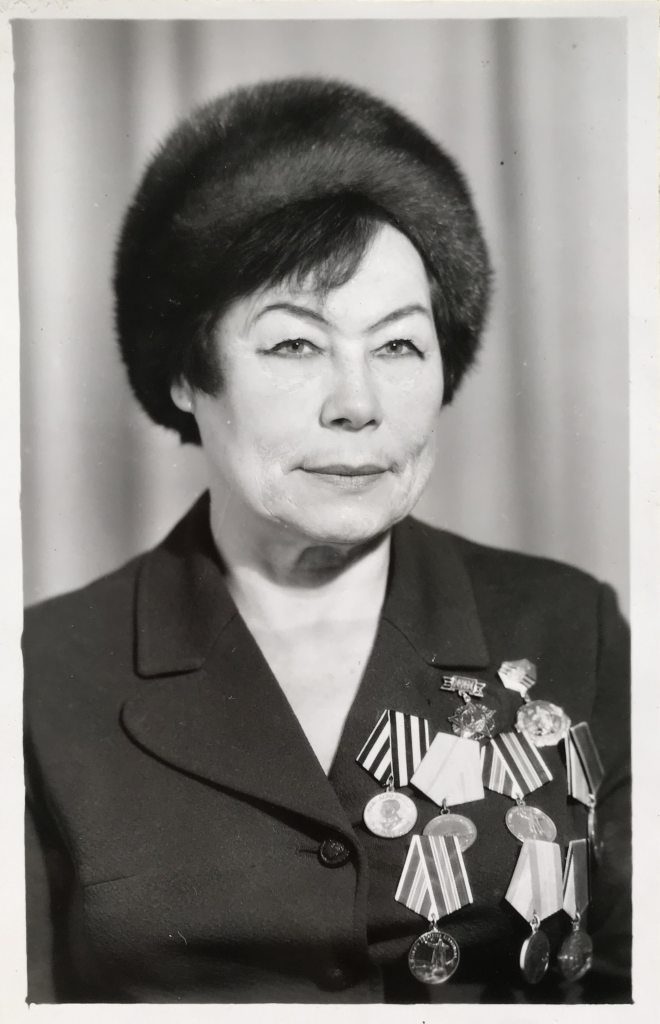
“The work at the library of the Central Committee of the Party was complicated and very different from the work at other libraries. We served not only the employees of the Central apparatus, but also members of their families and all the departments that were in the structure of the Central Committee – the Department of Science, Transport, Agriculture... We had especially a lot of work during congresses, plenary sessions and conferences of the Central Committee,” Raisa Petrovna says.
Importantly, Raisa Petrovna successfully combined the work at the library of the Central Committee with the post of a teacher of history and librarianship in Russia, at a library technical school that opened at the same time. Raisa Simakova worked in two positions until the technical school moved to Mogilev in 1961.
In 1961, the Government Library No. 2 was reorganized into a branch of the State Library of the BSSR named after V.I. Lenin. Raisa Petrovna was appointed to the post of head of the branch, where she worked until her retirement in 1987.
“My work at the branch of the State Library was very diverse, complex and interesting at the same time. There I combined the duties of the head of the branch and the head of the reference department, all reference and bibliographic work was entrusted to me. But despite all the difficulties, I liked my job as it was versatile and diverse. And I actively participated in the library’s public life. I was elected chairperson of the library’s Council of Veterans of the Great Patriotic War; I took an active part in meetings of veterans with young people, giving lectures and reports at these events”, Raisa Petrovna recalls.
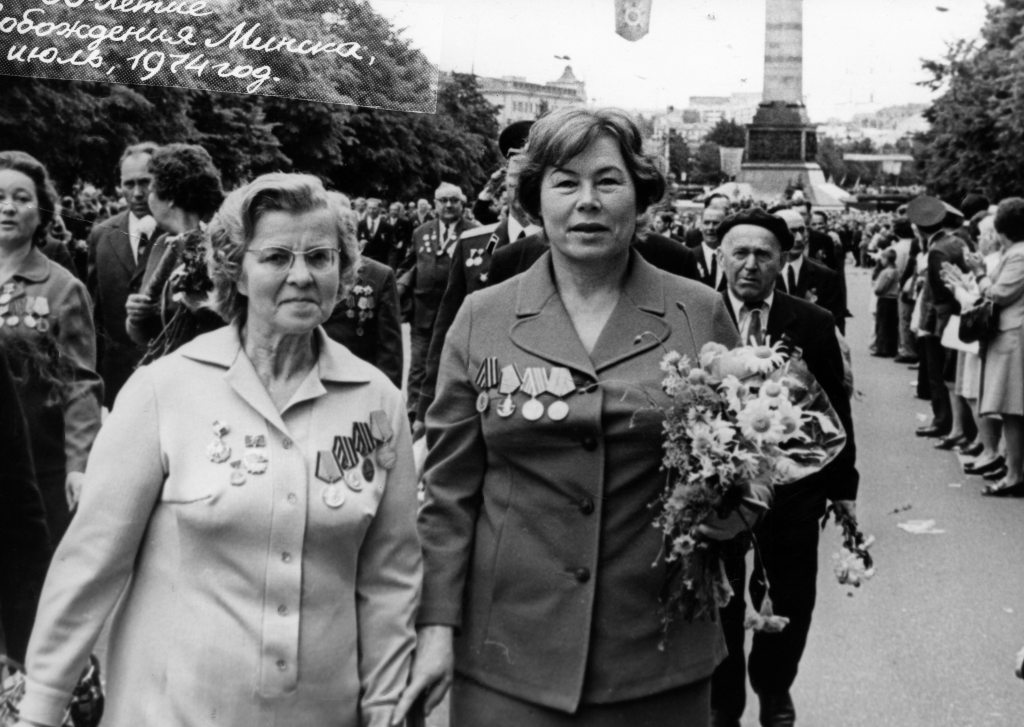
Raisa Petrovna Simakova is a Veteran of Labour – 50 years of work experience, 40 of which she worked at the branch of the State Library of the BSSR named after V.I. Lenin. Raisa Petrovna jokes: “Without leaving a place, only the chair upholstery changed with time.” For her long career, Raisa Petrovna has more than forty certificates for conscientious work, including the Certificate of the Supreme Council of the BSSR, certificates of merit of the Ministry of Culture of the BSSR and trade unions of cultural workers, the medal "Veteran of Labor."
“Raisa Petrovna is a person whose age you cannot guess. Only approximately, you can figure it out from her stories. He knows so many verses, funny jokes and anecdotes by heart, and she is always the master of the soul of any company...”
These words about Raisa Petrovna from the collection of memoirs With Love about the Library (in Russian: С любовью о библиотеке) remain relevant even now, on the day of her 99th birthday.
Library Science Research Department

